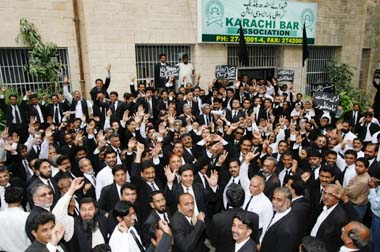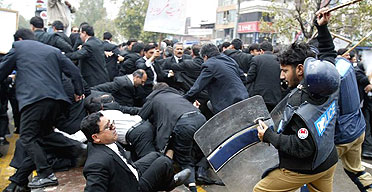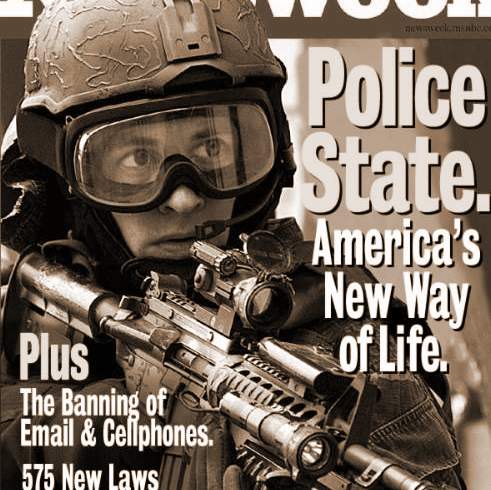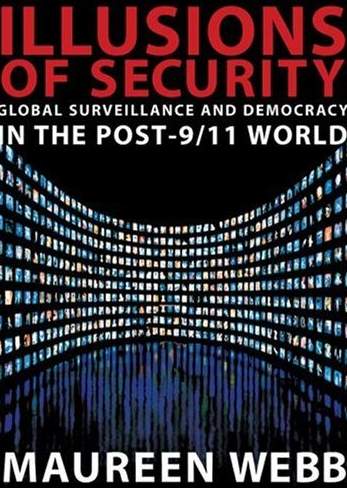Podcast: Play in new window | Download
US NLG Delegation in Pakistan Reports Back On the Rule of Law
A delegation from the National Lawyers Guild has released a preliminary report on its findings regarding the impacts of the Proclamation of the Emergency in Pakistan. The report found that anything short of restoring the judges deposed on last November 2007 will have long lasting negative impacts on the judiciary and rule of law in Pakistan. The delegation also noted structural problems in the pre-election climate such as lack of an independent judiciary, allowing free and fair elections nearly impossible. Here is the NLG Pakistan Delegation report.
The delegation’s findings are based on over 50 interviews with political party leaders, lawyers, members of civil society, government officials, judges, students and journalists in Lahore, Karachi, Peshawar, Quetta and Islamabad.
Guest – David Gespass, the Vice President of the National Lawyers Guild, he has led a delegation of American lawyers to Pakistan to show solidarity with the Pakistani lawyers demanding a return to the rule of law and to oversee and assist with preparations for the upcoming election in that country.
—
Bricks in the Wall: How a U.S. Police State Is Being Built
We hear a speech by Nation correspondent Roberto Lovato who spoke at the Brecht Forum. The event examined the near completion since 9/11 of the infrastructure for a police state in the US, including its legal and ideological apparatus. Co-host Michael Steven Smith and Vince Warren Executive Director of the Center for Constitutional Rights. were also among the speakers.
Illusions of Security: Global Surveillance and Democracy in the Post-9/11 World
Here on Law and Disorder we’ve covered in depth the scope of surveillance bearing down on the lives of people in a post 9/11 society. From intrusive RFID technology to phone companies and airlines handing over private consumer data to the FBI. Webb constructs a clear sense of the emerging panopticon singularity. The Panopticon Singularity bears a strong resemblance to the concept of “ubiquitous law enforcement.”
Excerpt from book: “Surveillance in a world of risk preemption requires that everyone be evaluated as a potential suspect in order to eliminate risk to the furthest degree possible. In this paradigm, the criminal law and due process protections that have been developed over centuries in democratic societies – such as the presumption of innocence; habeas corpus and rights against arbitrary, indefinite detention; attorney-client privilege; public trial; the right to know the evidence against one and to respond; the right against unreasonable search and seizure; and the right to remain silent – are viewed as intolerable risks.”
Guest – Canadian human rights lawyer Maureen Webb, she is the author of Illusions of Security: Global Surveillance and Democracy in the Post-9/11 World. In the book, Webb examines how governments worldwide follow the lead of the Bush administration in using quote terrorism as an excuse for public surveillance and information gathering.
——–



